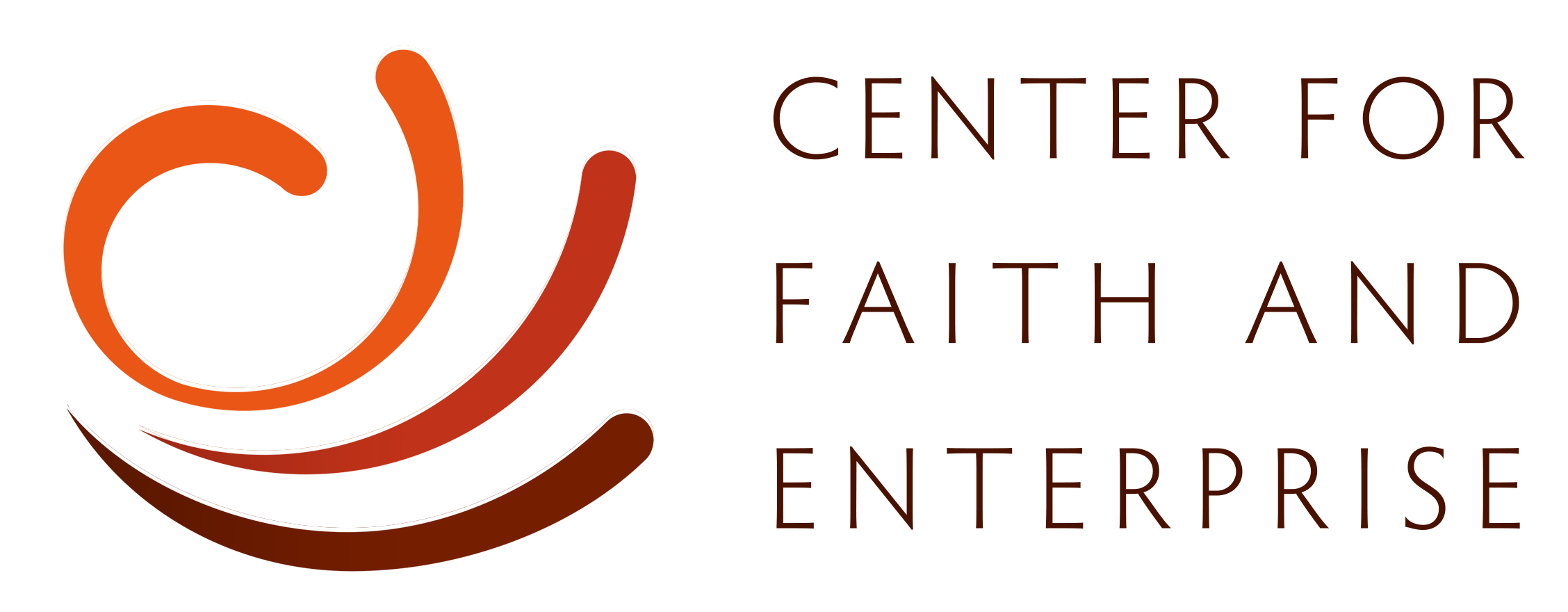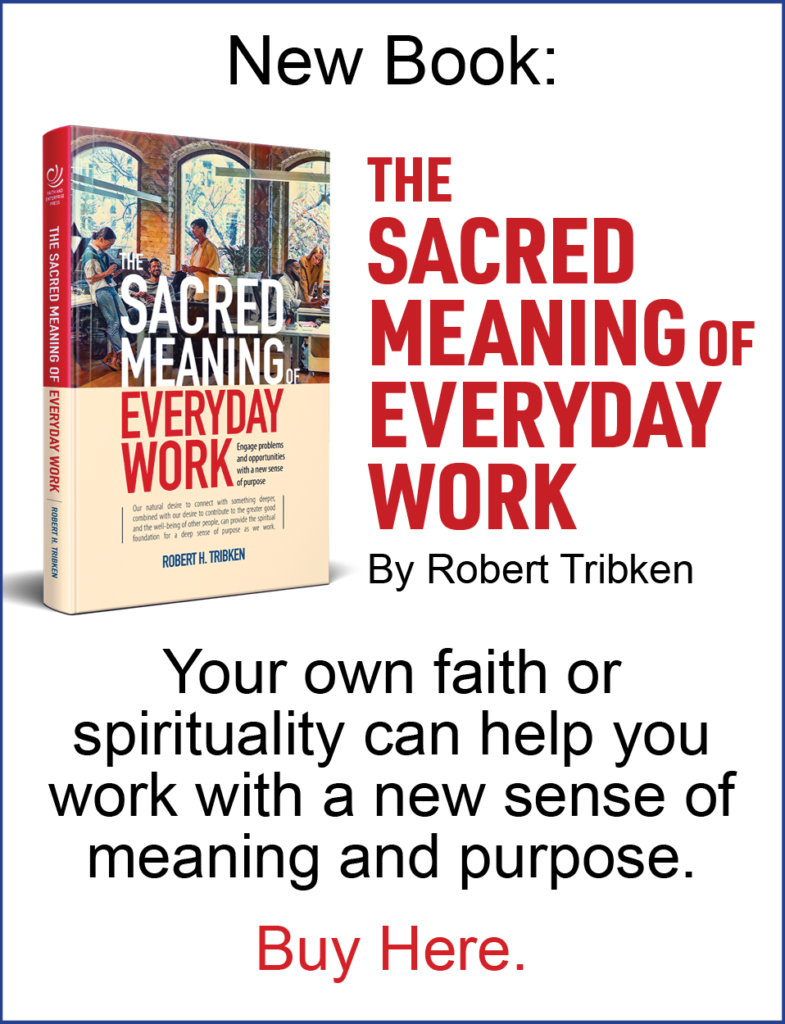Category: Finding Purpose
Entrepreneurs and the Renewal of Hope

Our ancestors survived threatening circumstances and created a better world, and so will we. Despite our problems, we can still contribute to the greater good and build better lives, each in our own way. For those of us in business, this means working with courage and hope as we identify new opportunities and build a better future.
This article looks at the important research by C. R. Snyder and his colleagues and combines it with Biblical insights.
Active hope can be a powerful force as we move into the future, especially if it is spiritually grounded. It will be essential for the entrepreneurial renewal our society needs.
Why Work? (Comments on Dorothy Sayers’ Famous Essay)

A Response to a Classic Essay on Work
In her 1942 essay “Why Work?” Dorothy Sayers made a strong case that we should not undertake work for the money it provides but for the sake of the work itself. This is a compelling idea that pushes back against some of the negativity surrounding the concept of work.
But she also criticized the validity of money as a motivation for working, beyond meeting basic needs, and seemed to think our work should not take into account the needs and wants of others. Both of these points can be challenged.
New Book: The Sacred Meaning of Everyday Work
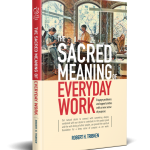 I am happy to say that after lots of research, discussion, writing, and editing, The Sacred Meaning of Everyday Work is now available on The book is available on Amazon. Thank you to everyone who has provided advice and insight over the years.
I am happy to say that after lots of research, discussion, writing, and editing, The Sacred Meaning of Everyday Work is now available on The book is available on Amazon. Thank you to everyone who has provided advice and insight over the years.
The book covers a range of topics, but the overall theme is that your own faith or spirituality can help you find the deeper meaning and purpose in your work life. It offers insights for the reader’s consideration from the Bible, contemporary research (especially positive psychology and organizational behavior), and business experience.
Prayer and Our Sense of Mission
 A Reflection on Mark 1:35-39
A Reflection on Mark 1:35-39
Early in his ministry, Jesus went off and prayed by himself in the early morning hours while it was still dark and emerged with a clearer, more powerful sense of mission. This story might have an essential insight for us as we consider the relationship between prayer and the sense of mission we bring to our work.
Video Archive: Michael Novak on Business as a Calling
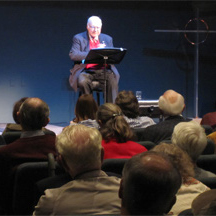 In April 2010, the Center for Faith and Enterprise brought scholar Michael Novak (1933-2017) to California for a speaking tour. We sponsored speaking events at Fuller Theological Seminary in Pasadena (hosted by the Max De Pree Center for Leadership), Biola University in La Mirada, and La Canada Presbyterian Church in La Canada/Flintridge.
In April 2010, the Center for Faith and Enterprise brought scholar Michael Novak (1933-2017) to California for a speaking tour. We sponsored speaking events at Fuller Theological Seminary in Pasadena (hosted by the Max De Pree Center for Leadership), Biola University in La Mirada, and La Canada Presbyterian Church in La Canada/Flintridge.
At La Canada Presbyterian, the subject was Business as a Calling. In this talk, Novak provided an update on his thinking fourteen years after the publication of his classic book by the same name.
Michael’s observations remain very insightful for today’s business environment.
When Callings Become Burdensome
 An acquaintance made a very interesting observation. He said that finding a calling has become a serious problem for many people his age (late 20’s), but not in the way that I had expected.
An acquaintance made a very interesting observation. He said that finding a calling has become a serious problem for many people his age (late 20’s), but not in the way that I had expected.
His contention was that there has been so much emphasis, especially among his peer group, on finding your calling, or following your passion, that the concept has become burdensome. Rather than finding a job that pays some money and seems to have a future, many people feel they are under a great deal of pressure to find not only a job but a calling. This has made it more difficult for them to get on with life.
Part of the problem, of course, is that it can take a long time to find or develop a calling, as Bryan Dik and Ryan Duffy point out in their book Make Your Job a Calling: How the Psychology of Vocation Can Change Your Life at Work. This can lead to a great deal of frustration if we try to rush the process.
But I think there might be more going on here.
Michael Novak, 1933-2017
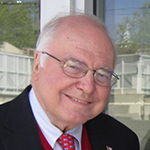 We received the sad news that Michael Novak died Thursday.
We received the sad news that Michael Novak died Thursday.
Novak was an outstanding scholar and the author of numerous books, including The Spirit of Democratic Capitalism and Business as a Calling. He was also a kind, thoughtful person with a gift for entertaining conversation.
A few years ago, shortly after the founding of the Center for Faith and Enterprise, I invited Michael to speak in California. To my complete surprise, I received a call from his assistant accepting my invitation; the result was a speaking tour sponsored by the C.F.E. (three formal lectures and two dinner meetings). I will always remember the almost two and half days we spent driving from venue to venue, conversing the whole time. It was a great time—he was an excellent conversationalist, a source of profound insight, and an encouraging voice.
(His friend the Rev. Robert Sirico of the Acton Institute has recorded a moving tribute.)
Ralph Waldo Emerson on Vocation
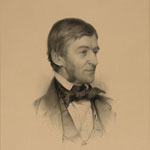 From a sermon preached by Ralph Waldo Emerson at the Second Church, Boston, October 21, 1832:
From a sermon preached by Ralph Waldo Emerson at the Second Church, Boston, October 21, 1832:
How many men now regard their business as so much interruption, as so much injury to their religious life? Their religious character is something separate from their daily actions. If instead of this each man worked in his favorite calling in the way and according to the principles of his own inward Teacher – and therefore with love—if he saw in every day’s labor that he was thereby growing more skillful and more wise; that he was co-operating with God in his own education, so that every dollar he earned was a medal of so much real power—the fruit and means of so much real goodness; if neither his working hours nor his rest was lost time, but all was helping him onward, would not his heart sing for joy? Would not the day be brighter and even the night light about him? Would not company be more pleasant and even solitude be sociable and his life reveal a new heaven and a new earth to his purer eyes?
Perhaps we can share his aspiration.
Passion and Our Work

We sometimes hear that we should “follow our passion.” But what happens when we actually do have a passion for our work—or maybe for some aspect of our life? Is this positive? Or is it negative?
According to psychologist Robert Vallerand, it could be either, depending on the type of passion.
Vallerand has written a fascinating and valuable book called The Psychology of Passion: A Dualistic Model, in which he proposes two types of passion: harmonious and obsessive. This has important implications for our work.
A Theology of Entrepreneurship
 “The Entrepreneurial Calling: Perspectives from Rahner” by the late William J. Toth of Seton Hall is an extraordinary theological reflection on the entrepreneurial vocation and the deeper significance of the entrepreneur’s hope, risk, and service to others.
“The Entrepreneurial Calling: Perspectives from Rahner” by the late William J. Toth of Seton Hall is an extraordinary theological reflection on the entrepreneurial vocation and the deeper significance of the entrepreneur’s hope, risk, and service to others.
A central concept for Toth was that of “providential love.” This idea combines anticipation of the future with a desire to create something of value for others. The entrepreneur intends to create part of the future but, at the same time, recognizes that success or failure will be determined by those who are free to accept or reject the offer made by the entrepreneur.
Serious Business: Why It Matters (Article by Tony Mulkern)
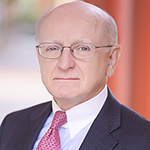 In his article “Serious Business: Why It Matters,” C.F.E. friend Tony Mulkern summarizes some of the arguments made by Michael Novak during his C.F.E. sponsored speaking tour a few years ago, and then concludes with his own advice to business owners:
In his article “Serious Business: Why It Matters,” C.F.E. friend Tony Mulkern summarizes some of the arguments made by Michael Novak during his C.F.E. sponsored speaking tour a few years ago, and then concludes with his own advice to business owners:
“When you wonder if it is all worth it, remember that you are a symbol, an example, and one of the drivers of a free people freely creating wealth, a society, and a world in which all can pursue their dreams, consistent with the freedom of others.”
